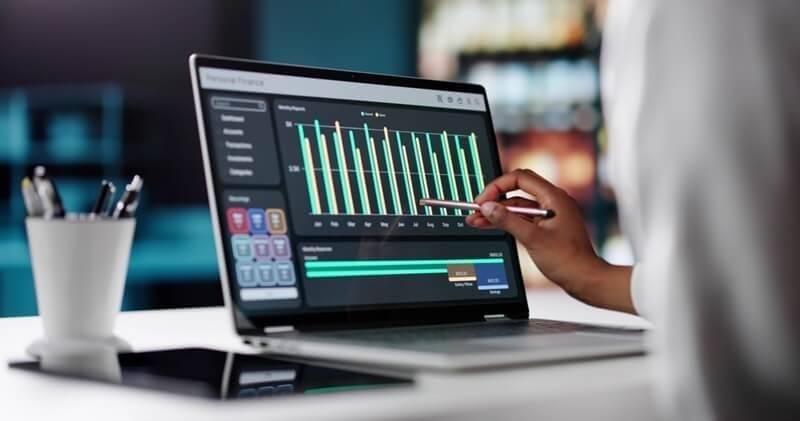
Most people don’t realize how easy it is to lose track of their money. One quick coffee here, a food delivery there, and by the end of the week, your account looks like it’s been through a storm. That’s where technology quietly saves the day.
These days, digital budgeting tools can keep your spending in check without needing a math degree or hours of number crunching. They connect to your bank accounts, show exactly where your money goes, and even send gentle reminders when you’re about to overspend. Simple, right?
The point isn’t to make you feel guilty about buying things you like. It’s to help you see what’s happening so you can make better choices next time.
Let’s face it. Writing expenses on paper isn’t happening anymore. We all mean to, but life gets busy. That’s why apps took over. Once you link your cards, these tools track every purchase automatically. You can see your entire money story in one place — income, bills, savings, all neatly sorted.
They even group your spending into categories, so you’ll know if your “weekend treats” are secretly becoming a second rent. That kind of awareness changes everything.
When people say budgeting doesn’t work, what they really mean is “I didn’t track it properly.” These apps fix that problem for you.
There was a time when people carried notebooks to jot down what they spent. Then came spreadsheets that only the patient could love. Now, everything happens in real time.
Modern automated money management tools connect to your bank, update automatically, and show your balance instantly. You don’t have to log in anywhere or remember to enter transactions. It’s budgeting that fits around your day, not the other way around.
Even better, most apps now use little visuals — colorful charts and progress bars — to make your finances feel less scary.
Mint has been around long enough to be called the classic. You link your accounts, and it does the rest. It organizes your spending, shows your bills, and keeps an eye on your subscriptions.
It’s one of the best finance tracking tools for people who just want clarity without fuss. It’ll even nudge you if you go beyond your limits. No complicated setup, no hidden tricks — just honest insights about your habits.
Mint’s interface feels like a dashboard for your money, easy to read and actually fun to use.

If you’re serious about changing your money habits, YNAB is your tool. It follows one rule — give every dollar a job. Before you spend, you decide where that money belongs. Rent, food, savings — everything gets its place.
This method makes you plan, not just react. It’s perfect for anyone trying to break the paycheck-to-paycheck cycle. Sure, it takes a week or two to get used to, but once you do, you’ll feel in control for the first time in years.
YNAB is one of the most loved pieces of budgeting software 2025 has to offer for people who want structure over spontaneity.
If impulse spending is your weak spot, PocketGuard might just save you from yourself. It calculates how much you can safely spend each day after all bills and savings goals are considered.
You open the app and instantly know what’s safe to use. It’s not judgmental, just helpful. It’s like having a little voice that says, “Hey, maybe hold off on that late-night shopping spree.”
Once you get used to it, you’ll realize how freeing it feels to know your spending limits in advance.
If you like pretty dashboards and flexibility, Monarch Money is your match. It’s one of the newer best finance tracking tools that combines beauty with brains.
It connects all your accounts, even investments, and shows your total financial picture — what you own, what you owe, and where you’re headed. Couples or families can even collaborate on shared goals while keeping some privacy.
It feels like the future of personal finance — simple but powerful.
Remember the old envelope trick? You’d label one “rent,” another “food,” another “fun,” and fill them with cash. Once an envelope was empty, that was it. Goodbudget takes that idea online.
You create digital envelopes, assign money to each, and spend accordingly. It’s old-school discipline with a modern twist.
This online budget planner is great if you like having clear boundaries. It helps you think before you swipe, and that alone can change everything.
If you’ve ever looked at your account and thought, “Wait, when did I sign up for that?”, Rocket Money has your back. It scans your transactions, finds all your subscriptions, and lets you cancel the ones you forgot about.
It even negotiates better rates for you on things like internet or phone bills. Basically, it’s like hiring a personal assistant who hates waste. Within a few weeks, it usually pays for itself.
Money and relationships can get tricky. Honeydue makes it easier by letting couples share certain budgets while keeping personal accounts private. You can both see bills, savings progress, and shared goals without losing independence.
The app even has a chat feature so you can talk about expenses right there instead of saving it for an awkward dinner conversation.
It’s one of those small things that make a big difference — fewer arguments, more teamwork.
If clutter drives you crazy, Wally is the tool for you. It’s simple, clean, and focused on doing one thing well — tracking your money.
You can set goals, snap receipts, and track spending in multiple currencies. It’s especially good for freelancers or anyone managing work across borders.
Wally doesn’t overcomplicate things. You open it, see what’s happening, and move on with your day.
Artificial intelligence is changing everything, even the way people budget. AI budgeting tools don’t just record data — they analyze it. They notice when your spending spikes, when bills are due, or when you’re falling behind on savings.
Some can even predict your next paycheck or suggest how much to save based on past habits. It’s not creepy — it’s incredibly useful. Think of it as budgeting that learns and adjusts to your lifestyle automatically.
That’s the direction financial tech is heading: personalized, predictive, and quietly supportive.
No single app works for everyone. It depends on your habits, comfort, and goals. Want something automatic? Go with Mint or PocketGuard. Prefer structure? YNAB. Need simplicity? Goodbudget.
Couples might love Honeydue, and anyone focused on investments or full control will probably enjoy Monarch.
Try a few for a week each. You’ll quickly see which one “clicks” with you.
Absolutely. Sometimes the best system is a combo. Maybe you use Rocket Money for subscriptions, Mint for tracking, and Wally for receipts.
Just make sure it doesn’t turn into chaos. The idea is to make life easier, not busier.
Connecting your bank to an app can make anyone nervous. Always check that the app uses encryption and two-step verification. Look for ones backed by credible financial partners.
Your safety comes before convenience — that’s non-negotiable.
The next generation of budgeting software 2025 won’t just show you where your money went. It’ll guide you on where it should go next. Imagine your app knowing your rent is due, your grocery bill is higher than usual, and then quietly suggesting adjustments so you don’t fall short.
These tools are learning to act less like calculators and more like coaches. Budgeting won’t be something you do; it’ll be something that happens naturally in the background.
Even the smartest app won’t help if you never open it. The trick is building a small habit — check in once a week, even for five minutes. Review what you spent, what you saved, and what can improve.
Celebrate small wins. Maybe you cut your food delivery bill or saved $50 more than last month. Every little victory adds up.
Consistency beats perfection every single time.
Managing money doesn’t have to feel like work. These digital budgeting tools take care of the details so you can focus on what matters — living comfortably and planning ahead.
Start small. Pick one app, try it for a month, and see what changes. With the right AI budgeting tools and a bit of awareness, you’ll find budgeting isn’t a burden anymore. It’s just part of a smarter, calmer lifestyle.
This content was created by AI